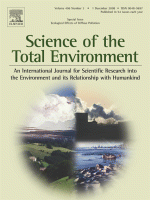
Invasive Aedes aegypti and Aedes albopictus mosquitoes transmit viruses such as dengue, chikungunya and Zika, posing a huge public health burden as well as having a less well understood economic impact. We present a comprehensive, global-scale synthesis of studies reporting these economic costs, spanning 166 countries and territories over 45 years. The minimum cumulative reported cost estimate expressed in 2022 US$ was 94.7 billion, although this figure reflects considerable underreporting and underestimation. The analysis suggests a 14-fold increase in costs, with an average annual expenditure of US$ 3.1 billion, and a maximum of US$ 20.3 billion in 2013. Damage and losses were an order of magnitude higher than investment in management, with only a modest portion allocated to prevention. Effective control measures are urgently needed to safeguard global health and well-being, and to reduce the economic burden on human societies. This study fills a critical gap by addressing the increasing economic costs of Aedes and Aedes-borne diseases and offers insights to inform evidence-based policy.
